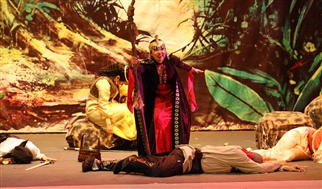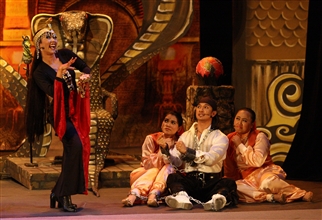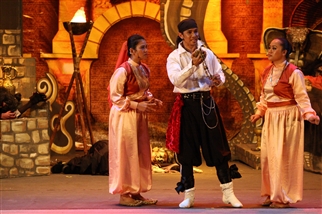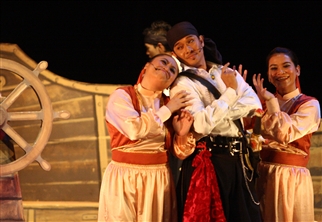
Bangsawan is a theatre without script. The actors are provided the synopsis or scenarios by the director before the stage performance. Besides appreciating the character, the main actor has to be skilful in singing, dancing, poetry recitation, the display of martial art and the ability to perform various alarming scenes such as leaping through glass window or avoiding repeated stabbing of a keris or lance. All these has to be done spontaneously and accurately.
Improvisation is an important element in a Bangsawan performance. Improvisation in bangsawan encompasses all aspects of acting; physical, oral and mental. The physical aspect involves movements, symbolical gestures, stage business, dance movements, mime, martial arts and robust scenes. The oral aspect encompasses speaking dialogue, mutual response of poetry, singing, poetry recitation, poetry, 'bernasib' (a mixture of spoken and sung dialogue), monologue, soliloquy and loud whispering. Meanwhile the mental aspect refers to all the various actions that arises at different physical, oral or emotional moments.
All improvised actions begins from the scenario that is supplied by the director. Based on the scenario and the character played, the actor will improvise until the end of the story. Everything that is seen, heard and felt and experienced by the audience was the fruits of the actor’s improvisation. With the exception of the dance scene, basic bloking, martial arts action and song lyrics, poetry, 'bernasib' and speeches or behaviour which are connected with palace ethics were not procured through improvisation but through special tutoring. These particular form of improvisation are learned by actors from their peers who are experienced or experts.
Improvisation forms the core of a Bangsawan performance. Therefore, the actors need to be realistically skilful, talented and dedicated.



